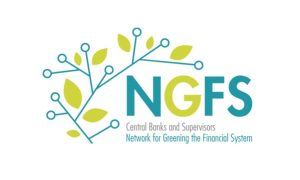Origin and Definition of Greenwashing
Although the concepts of ESG and sustainable development have become popular in recent years, the term “greenwashing” has a longer origin. Greenwashing first appeared in 1986, describing the phenomenon of a hotel letting customers reuse towels. It sounds like it has something to do with environmental protection, but in fact, the hotel is only doing so to save costs.
The phenomenon of greenwashing in the current market is more complex and difficult to identify than 36 years ago. Greenwashing can be understood as “declaring green actions to the outside world when do not meet the green standards”, or “exaggerating green actions”. Is there a specific definition?
In a word, as greenwashing involves many disciplines, such as economics (enterprises’ choice), law (actions under environmental protection laws and regulations), and communication (advertising publicity), there is no perfect definition at present, and it is more necessary to start with relevant phenomena to distinguish greenwashing.
Greenwashing in Industrial Aspect
The regulations around the world on greenwashing can be divided into two directions: greenwashing for industry (production) and green washing for finance (investment). The origin of industrial greenwashing has been long, and the “towel phenomenon” in 1986 is the origin of industrial bleaching. At the same time, the greenwashing of the industry is also the core to solve the problem, because ESG’s investment is to invest in real enterprises.
The phenomenon of greenwashing in industry can be roughly divided into the following categories:
- Publicity without specific evidence: propose own green actions, but there is no direct evidence to prove the emergence of actions. For example, enterprises publicize that most of their products are recycled, but they do not provide recycling information;
- Publicity lacking specific standards: relevant green concept is proposed, but both enterprises and markets have little understanding of the specific standards of this concept. For example, enterprises say that their products are “pure natural”, but no one knows what the definition of “pure natural” is and how to understand it;
- Publicity with less significance: Although it is related to environmental protection, it has little significance in fact. For example, some products will have the standard of “Freon free”, which seems to be related to environmental protection, but many countries have explicitly legislated to prohibit the use of Freon. These products were marked more valuable 30 years ago;
- Conflicting publicity: it is directly related to specific industries. For example, some high emission industries do not make progress in environmental protection in their main production business, but publicize their own green measures in packaging and transportation;
- Anchoring impression publicity: use people’s conventional impression to promote their own green action. For example, if the enterprise arranges green pictures and videos on the website, consumers will think that the enterprise pays attention to nature, but enterprise may not take actual actions;
The above phenomenon of greenwashing in the industry is also an important content considered by the regulatory authorities when formulating ESG policies. From the regulatory perspective, the key to solving the problem is to develop a set of practical and specific enterprise report templates.
Greenwashing in Financial Aspect
The target group of the industrial greenwashing is consumers. The target group of greenwashing in the financial aspect is investors. The financial industry does not directly participate in the production process, but is directly related to investment. It cannot be denied that the industry’s green drift will cheat the financial industry to some extent.
The phenomenon of greenwashing in the financial sector is relatively simple, mainly related to ESG rating and investment. For example, financial institutions may adopt looser standards in rating to obtain green results satisfactory to enterprises and earn money. They can also expand the scope of ESG related assets in investment to obtain investors’ funds.
The phenomenon of green drift in the financial sector is as important as that in the industrial sector, and these phenomena are being resolved by national regulatory authorities through legislation.





